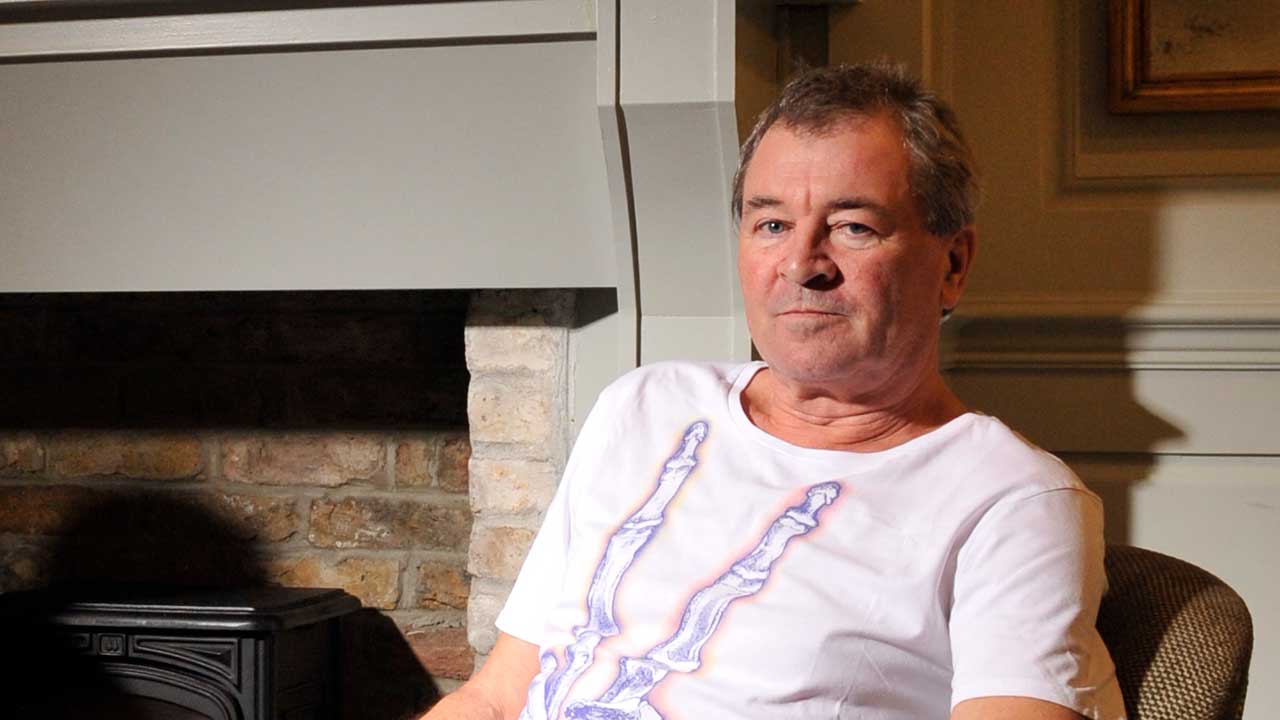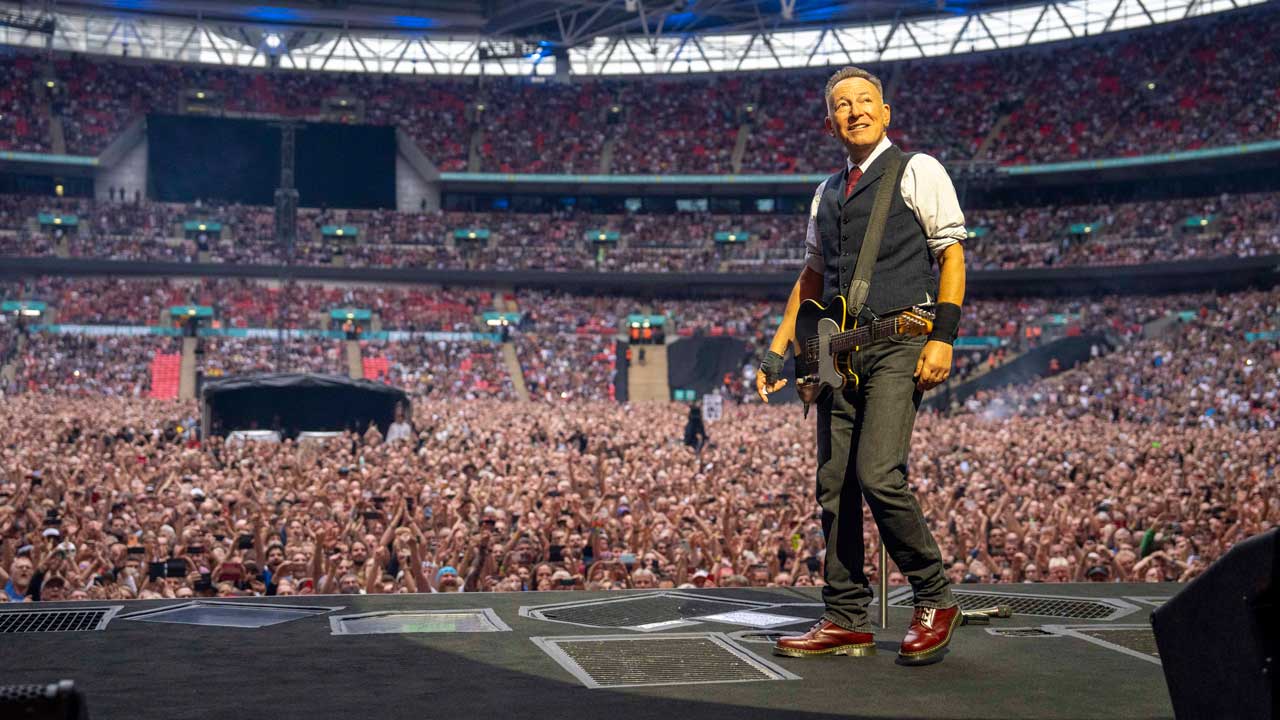Ian Gillan: 8 songs that changed my life
Deep Purple frontman Ian Gillan revisits the roots of his teenage rock‘n’roll education and picks eight songs that changed his life

Select the newsletters you’d like to receive. Then, add your email to sign up.
You are now subscribed
Your newsletter sign-up was successful
Want to add more newsletters?

Every Friday
Louder
Louder’s weekly newsletter is jam-packed with the team’s personal highlights from the last seven days, including features, breaking news, reviews and tons of juicy exclusives from the world of alternative music.

Every Friday
Classic Rock
The Classic Rock newsletter is an essential read for the discerning rock fan. Every week we bring you the news, reviews and the very best features and interviews from our extensive archive. Written by rock fans for rock fans.

Every Friday
Metal Hammer
For the last four decades Metal Hammer has been the world’s greatest metal magazine. Created by metalheads for metalheads, ‘Hammer takes you behind the scenes, closer to the action, and nearer to the bands that you love the most.

Every Friday
Prog
The Prog newsletter brings you the very best of Prog Magazine and our website, every Friday. We'll deliver you the very latest news from the Prog universe, informative features and archive material from Prog’s impressive vault.
Music has been an ever-present constant in Deep Purple frontman Ian Gillan’s life for as long as he can remember.
“My grandad was a bass baritone and sang opera, my uncle was a jazz pianist and my grandmother was a ballet tutor, so the house was always full of music, Chopin and Verdi to boogie-woogie,” he recalls. “I was a boy soprano in the church choir, so I always knew I could sing.”
And then Gillan got bitten hard by the rock’n’roll bug. In his first band, Garth Rockett and the Moonshiners, the youngster played drums in addition to singing, but he moved to centre-stage with his next group, The Javelins. Rather remarkably, to the delight of his old pals, the singer resurrected the quintet in 2018, more than fifty years after they disbanded, revisiting their 1963 set-list over five days in a Hamburg recording studio, to produce Ian Gillan And The Javelins.
“It worked out brilliantly,” Gillan enthuses. “It was like stepping into a time machine. The hairs on my arms were rising, because it was like I was 18 again.”
Here then, are eight of the songs that set one of rock’s greatest frontmen on the path to glory.

Chuck Berry - Rock And Roll Music (1957 single)
“Chuck Berry was the first and the best. He’s the guy who wrote Roll Over Beethoven, who wrote No Particular Place To Go, Johnny B. Goode, Sweet Little Sixteen, Memphis, Tennessee… come on! And Rock And Roll Music, I mean, the lyrics here are so expressive of the time.
"Chuck Berry was a maestro, the teacher for everyone in rock’n’roll. Over the years I’ve probably sung virtually every song that he ever recorded. One night in Germany he used Ian Paice, Ritchie Blackmore, Roger Glover and Jon Lord as his backing group: he used to turn up without a band and just adopt the support act.
Sign up below to get the latest from Classic Rock, plus exclusive special offers, direct to your inbox!
"I’ve a recording of a live set he did with The Swinging Blue Jeans, in Hamburg, where every song starts fast and just gets faster: it was uncontrolled mayhem. Absolutely wonderful. They were three chord songs, but nobody could deliver them like Chuck. He’s one of the true greats."
The Crickets - It’s So Easy! (1958 single)
“When kids of my generation first listened to music it was via a radio plugged into the wall, and it was the BBC playing Frank Sinatra, Perry Como or Dean Martin. Fortunately, someone invented a transistor so we could escape our parents and escape the BBC and take our music into the schoolyard or park and listen to Radio Luxembourg. And we all discovered rock’n’roll.
"I think Buddy Holly wrote this with Norman Petty. His voice was gentle and his songs were pretty and melodic, and he had so much kudos. We accepted Buddy Holly and the Everly Brothers as part of our circle of rock’n’roll heroes. His songs were teenage love songs basically, and the girls loved them, so we played them because we wanted those girls to love us!"
Ray Charles - What’d I Say (1959 Single)
“I think I heard Eddie Cochran do this song first, but Ray Charles does the definitive version, and that’s the arrangement we did with The Javelins. Ray Charles was a soul/jazz/blues singer with rock’n’roll tendencies, and he was so talented and multi-faceted as a musician and songwriter. That rhythm and that little lick… it got you by the cojones straight off.
"We didn’t have a piano player in The Javelins, well, we did, a fantastic piano player, but his dad wouldn’t always let him come out in the evenings… so we could only play Ray Charles and Jerry Lee Lewis songs when he was available, and only if the pub had a stand-up piano. This song was quite challenging for kids our age to play with our limited talents at the time."
Roy Orbison - Dream Baby (How Long Must I Dream) (1962 single)
“Back in the day when someone bought a new single we’d all go around their house and listen to it together. Somebody bought Dream Baby, and none of us had heard a voice like that before, it was very pure, which was intriguing to me. It’s such a fantastic song, and it builds beautifully. Roy Orbison to us was like a pop version of Johnny Cash, dressed all in black with his shades, but with a better voice.
"We’d hear a song like this and then a week or two later our band would be playing it in front of an audience, just like The Rolling Stones and The Beatles did at the start. Later with Deep Purple we’d often have a jam session in the middle of Speed King and sometimes I’d throw in a bit of Dream Baby, so it’s obviously embedded in my heart somewhere."
The Beatles - Chains (Please Please Me, 1963)
“This was originally recorded by a girl group called The Cookies but I only heard that version about ten years ago. The real charm in this record is the writing – the lyrics and the concept and the structure. It was written by Gerry Goffin and Carole King, who were part of that whole New York Brill Building scene, and when The Beatles did it it had a real groove and edge and muscle to it.
"It’s not a stand-out melodic song, but the harmonies are fantastic, and Lennon and McCartney gave it real punch. The Beatles were very important, they were exceptional, with the sound they had, the production, the perfect blend of voices. And they were four characters and sometimes the characters are just as important as the music."
Faron’s Flamingos - Do You Love Me (1963 single)
“This song was recorded by several artists [The Dave Clarke Five and The Hollies among them], but the version we liked best was by Faron’s Flamingos, from Liverpool. It’s a pretty obscure record and didn’t do much commercially, because the original by The Contours was successful. It’s a great, high impact live song.
"There were places like [legendary Liverpool club] The Cavern all over the UK and all over Europe, particularly in Germany, and you’d maybe have 50-60 people crammed in to somewhere no larger than your front room, and a song like Do You Love Me would start or end the set with a bang."
Buddy Holly - Heartbeat (1958 single)
"We’ve already talked about Buddy Holly and his importance. The thing I like best about Heartbeat is actually the delicious guitar solo, but again this is just another pure and perfect song. With the recording techniques back then, working on just two or four tracks in the studio, you can hear every breath the singer’s take and every squeak of the guitar strings and there’s a real purity and immediacy to the songs, as if the singer is singing directly into your ear. No wonder the girls liked him."
Bo Diddley - Mona (1957 B-side)
“When Bo Diddley arrived, it was just like, Get back! Wow! I was a teenager when I saw Screaming Lord Sutch for the first time, in Southall Town Hall, and the room was jammed, we were all getting crushed against the front of the stage. And then Dave Sutch came on-stage and I swear he was so terrifying that there was suddenly a ten foot gap between the stage and the audience, because everybody stepped back with shock, like, Oh my God!
"Well, Bo Diddley was like that, in a different way, because he was such an outrageous showman, with his homemade rectangular guitar and his wild outfits. He had this unique rhythmic sound too. This has a simple boy-girl lyric but it’s cute, and the song is so powerful, with a great infectious rhythm. I think this song was a big part in the evolution of rock‘n’roll music. I still walk to this rhythm."

A music writer since 1993, formerly Editor of Kerrang! and Planet Rock magazine (RIP), Paul Brannigan is a Contributing Editor to Louder. Having previously written books on Lemmy, Dave Grohl (the Sunday Times best-seller This Is A Call) and Metallica (Birth School Metallica Death, co-authored with Ian Winwood), his Eddie Van Halen biography (Eruption in the UK, Unchained in the US) emerged in 2021. He has written for Rolling Stone, Mojo and Q, hung out with Fugazi at Dischord House, flown on Ozzy Osbourne's private jet, played Angus Young's Gibson SG, and interviewed everyone from Aerosmith and Beastie Boys to Young Gods and ZZ Top. Born in the North of Ireland, Brannigan lives in North London and supports The Arsenal.
